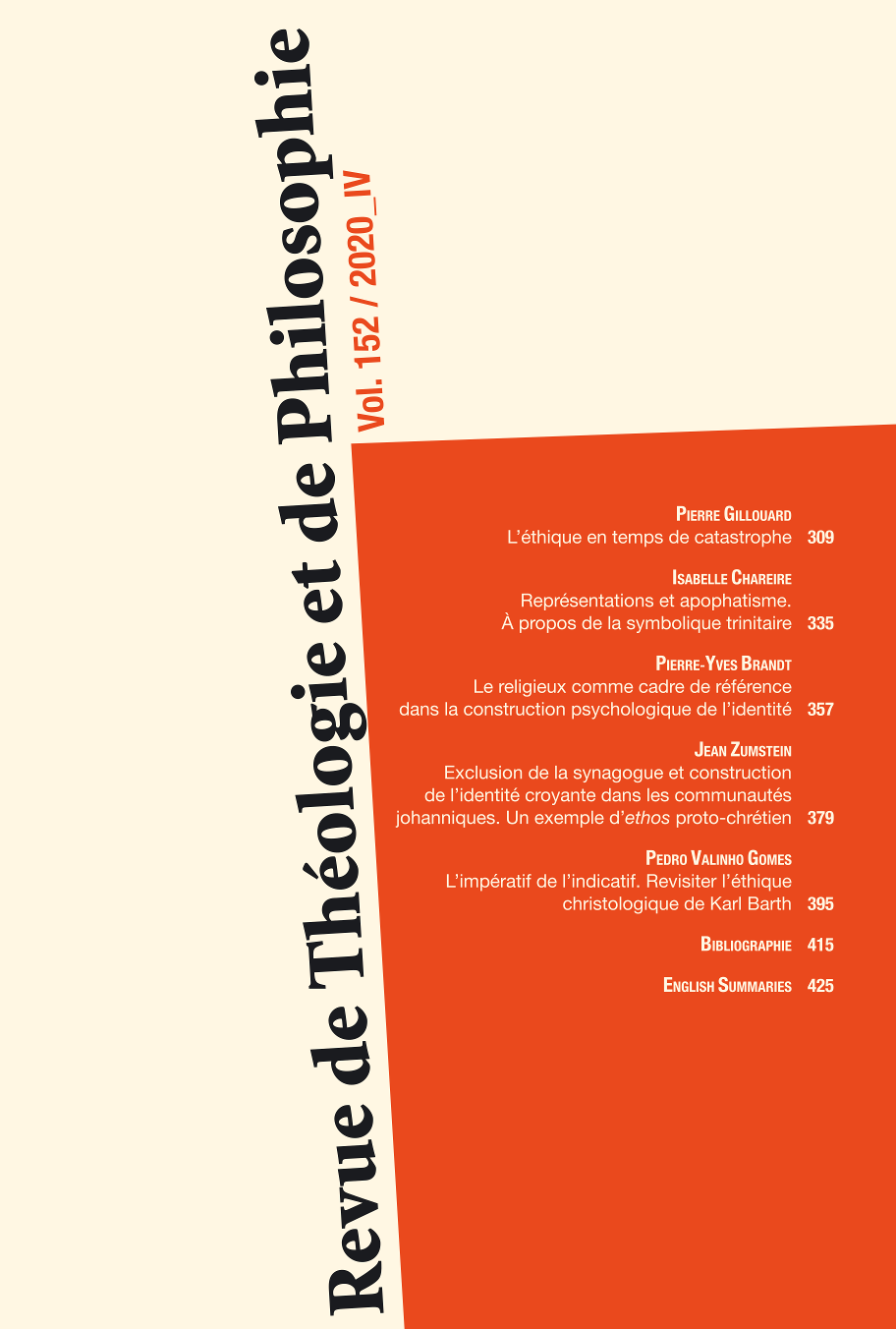The Imperative of the Indicative
Revisiting Karl Barth’s Christological Ethics
Abstract
This article focuses on the foundations of theological ethics by way of an examination of three of Karl Barth’s contributions to this field. First, the definition of ethics as the indicative’s imperative, which posits an inseparability of ethics and dogmatics whereby ethics is viewed as an act of listening to revelation. Second, the articulation of a Christological nexus in relation to the categories of obedience and freedom as “determined self-determination”. Third, the debate on the Gospel and the Law as revelation of the history of grace on the basis of which the grammar of human existence is drawn. Each of these three steps finds an illustration through a commentary of a biblical passage, on the calling of Abraham, on Jesus’ agony in Gethsemane, on the question addressed to Jesus concerning the good that needs to be done in order to inherit eternal life. The article suggests that ethics, when construed theologically, orients itself toward Christology.
How to Cite
More Citation Formats
Issue
